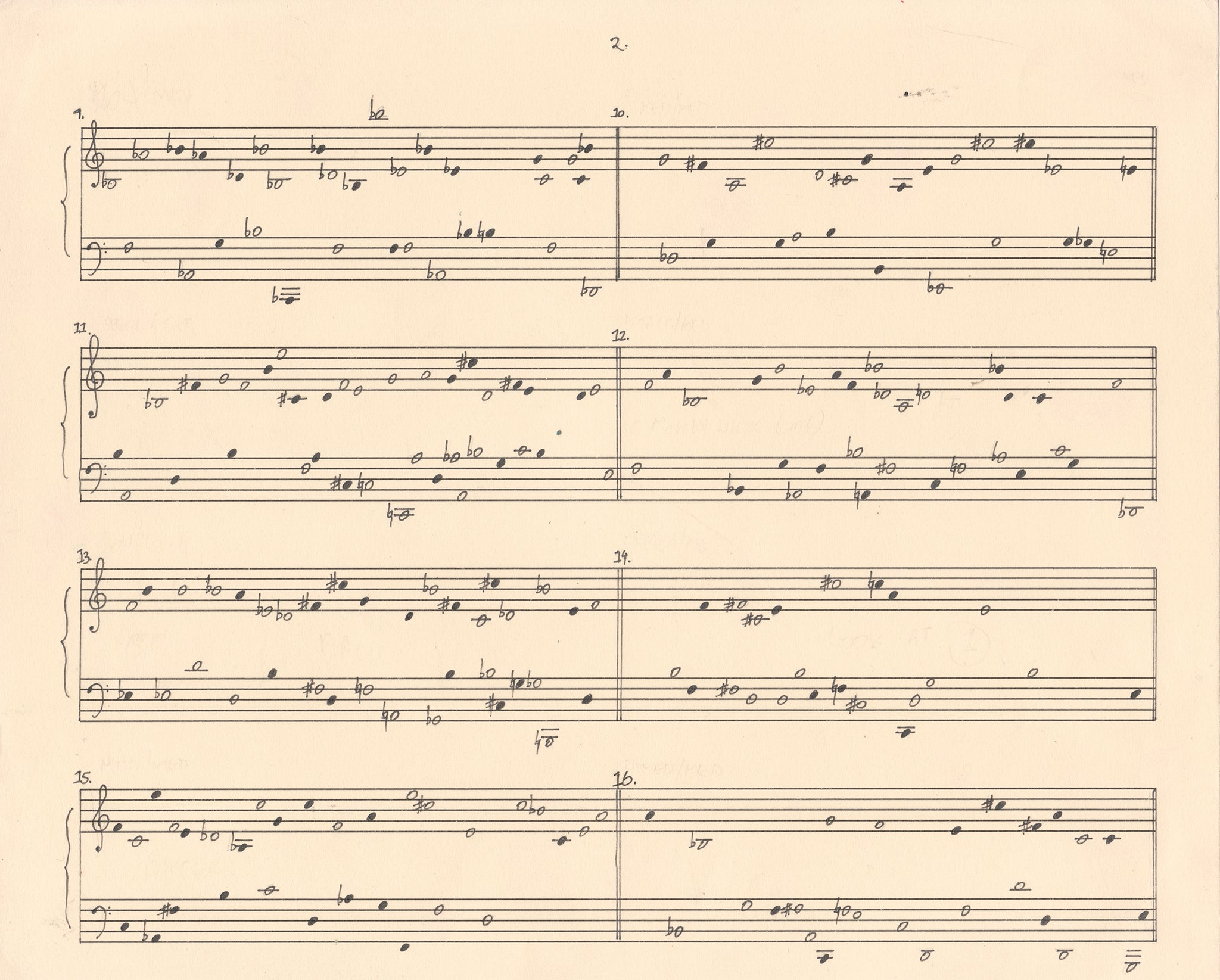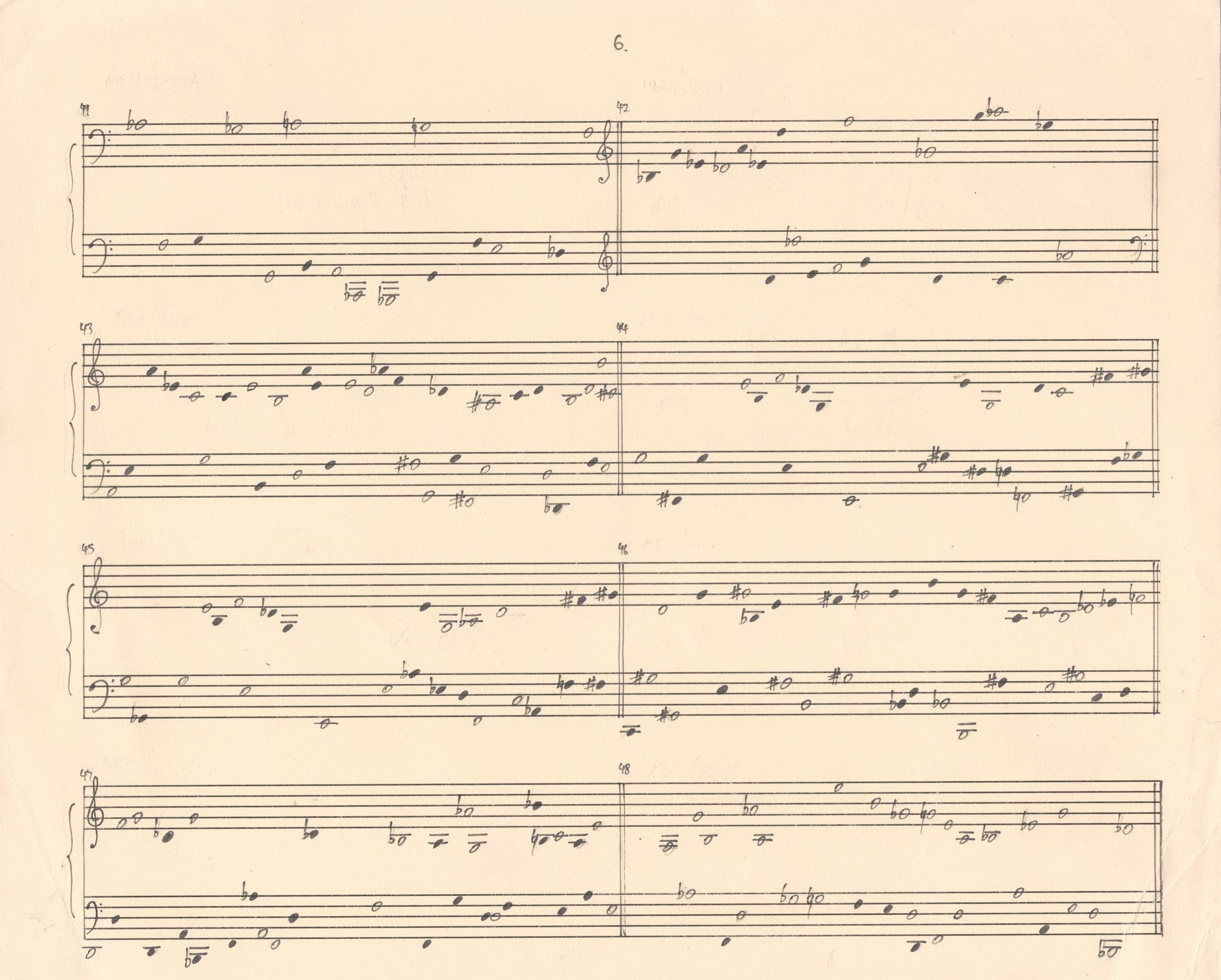As a composer-performer, I am constantly experimenting with ways to synthesize the dual facets of my practice, particularly in meaningfully contextualizing my relationship to historical instrumental repertory. See The Welter was written partly as an exercise in helping me, as a composer-performer, understand the extraordinary and mystifying Música Callada, a work I fell in love with playing since it was introduced to me by Michael Pisaro in 2014. Inspired by the image of a ‘musical shadow’, See The Welter interprets and reworks material from Música Callada in an attempt to further loosen the original from its temporal and formal bounds. However, my work’s shadow function does not simply refer to its material, structural qualities, but also to its potential for casting a kind of mental shading or psychic intensity on the performer.
I first performed these works in 2016, under the tutelage of my piano teacher and mentor Vicki Ray, and, over time, I have found that each work has uniquely influenced my interpretation of the other. Thus, my very slow and wandering performance of Mompou’s work seems a result of frequently playing See The Welter together with it. If I were to play Música Callada on its own, my interpretation would probably be quite different, but this recorded version is performatively bound up with See The Welter, as if the two works were pieces of fabric washed in the same water, their respective colors bleeding into each other. As I continue to play these works together, this cross-staining has become increasingly bewildering to me, raising questions about how a work self-projects onto its performer, and, indeed, its listener. Whether or not this deeply personal experience of shadow can be transmitted to a listener, I hope that, through this recording, there can be sensed a further, hidden depth and energy–a living remainder–hovering in the airless, lightless atmosphere of Mompou’s ‘silent music’.
– James Rushford, 2020










